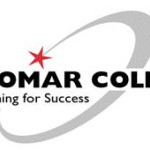- Industrie: Education
- Number of terms: 12355
- Number of blossaries: 0
- Company Profile:
Founded in 1946, Palomar College is a public two-year community college in the city of San Marcos, located in north San Diego County, California. Palomar offers over 300 associate degree, certificate programs and is designated by the U.S. Department of Education as an Hispanic-Serving Institution ...
A sample that is selected by a researcher without any bias whatsoever. In other words, all samples in a population have an equal probability of being selected. This can be achieved by using a computer to randomly select the sample.
Industry:Anthropology
A genotype consisting of two different alleles of a gene for a particular trait (Aa). Individuals who are heterozygous for a trait are referred to as heterozygotes. See homozygous.
Industry:Anthropology
A discrete, thread-like, gene-carrying body in the nucleus of a cell. Chromosomes are composed primarily of DNA and protein. They are visible only under magnification during certain stages of cell division. Humans have 46 chromosomes in each somatic cell and 23 in each sex cell.
Industry:Anthropology
A phrase Charles Darwin used to refer to the process by which natural selection favors some variations resulting in their becoming more common in the next generation. Descent with modification is another way of describing evolution.
Industry:Anthropology
A reproductive cell--sperm or unfertilized ovum cell produced in the testes and ovaries of animals. Gametes are produced by meiosis. They normally have half the number of chromosomes found in somatic cells.
Industry:Anthropology
A mating pattern in which one female has more than one male mate. Polyandry is rare among nonhuman primates. It is seen only among marmosets and tamarins. Polyandry occurs in some human societies in isolated rural regions of India, Sri Lanka, and especially Nepal, and Tibet.
Industry:Anthropology
A rock core that has been preliminarily shaped by rough percussion flaking in order to remove flakes of standardized sizes and shapes. See punch flaking and Levallois flake.
Industry:Anthropology
A diagnostic procedure for pregnant women to determine whether or not their fetuses have gross chromosomal anomalies. It involves collecting a small sample of chorion cells for karyotyping. The biopsy usually is done by inserting a small flexible plastic tube through the vagina and the cervix of the uterus to draw out a sample of chorion tissue. Alternately, the cells may be extracted with a hypodermic needle through the uterine wall, as in the case of amniocentesis. With CVS, there is approximately 98% accuracy in diagnosing Down syndrome and many other conditions due to gross chromosomal abnormalities. However, the accuracy in predicting neural tube defects is lower than with amniocentesis. Some sources refer to CVS as "chorionic villus sampling". "Villus" is the singular of "villi".
Industry:Anthropology
A small population size effect in which the genes of a few people (the population founders) are inherited over time by a large number of descendents. This is also known as the "founder effect" and the "Sewall Wright effect. " See genetic drift.
Industry:Anthropology
A horseshoe-shaped bone in the neck above the larynx supporting the base of the tongue. Since jaw, tongue, and larnyx muscles are anchored to it, the hyoid bone is essential for the production of sounds used in human speech. Humans are the only primates that have their hyoid bones high in the neck. Subsequently, they can produce a wider range of vocal sounds than other primates.
Industry:Anthropology
